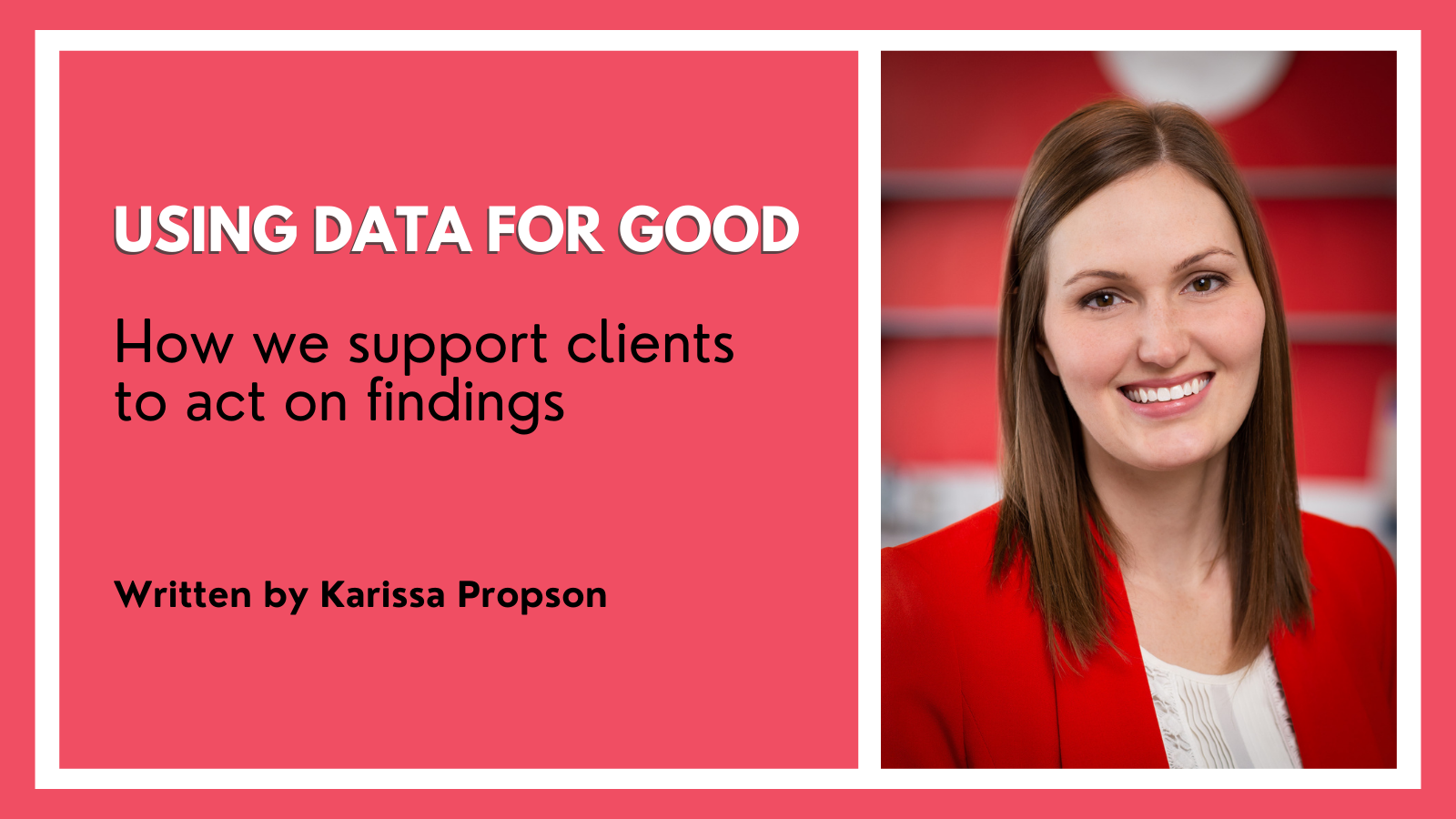
Hi, I’m Karissa Propson, a Senior Consultant at The Improve Group. In my role, I often bring a fresh perspective to the organizations we serve. I want to share some themes I’ve noticed from recent experiences of supporting clients to think deeply about evaluation and use results.
In these conversations, I’m guided by The Improve Group’s use-focused approach to evaluation. We center our work around the intended use of evaluation results—typically, to make changes to deepen impact. I’ve seen this show up in our work in three key ways lately: evaluating incremental change, digging into why a client wants to learn about something, and crafting responsive evaluation plans.
- In longer-term projects, I look for ways to evaluate along the way to longer-term outcomes to measure and learn from incremental changes. For example, early in a 5-year project, we could measure new knowledge or shifted attitudes. This would show to what degree the program is on the path for longer-term outcomes that new knowledge or attitude changes precede, like changes in behavior.
- I also dig into the “why” behind evaluation. Clients often begin their evaluation journeys with many areas of curiosity and interest. I support them to translate those into useful, evaluation questions, such as by asking, “What will you know when you do this evaluation, and what will you do with that knowledge?” I aim to help people think through what decisions they want to be able to make based on findings—be they related to staffing, funding, program design, or other areas. For example, consider an organization that wants to understand how COVID-19 affected the lives of people they serve. While interesting, it might not be clear how the organization could use these broad findings. Instead, we could narrow in on an aspect of the organization’s programming that could support people with pandemic-related challenges, and then design an evaluation to understand how that programming could be more supportive.
- From these conversations—often in the inception and design phases—we can develop evaluation plans and evolve as we go. We firmly believe that we don’t need to stick to doing an evaluation a certain way because it’s what we originally planned. As new information comes up or contexts evolve, we continue to make sure our evaluation questions are relevant and that answering them will be useful.
Promoting the use of evaluation is a key way The Improve Group fulfils its mission of helping mission-driven organizations make the most of information, navigate complexity, and ensure their investments lead to meaningful, sustained impact. It’s an honor to partner with the wide variety of clients we work with to craft evaluation that is exciting, meaningful, and—above all—useful.
